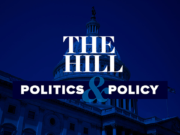UPDATE: Public Citizen’s Taylor Lincoln, an author of the report, has provided a response to this post. In keeping with our high regard for free speech, it is presented in its entirety below:
I believe that your April 3 blog post (“Coordination Is Not a Foregone Conclusion”) missed the point of Public Citizen’s report, which I wrote. The blog item’s references to questions about whether corporations bought the election or if coordination laws were violated were not discussed in my report.
My report simply demonstrated that the Supreme Court’s core underlying assumption in Citizens United that the new spending it permitted would be “independent” has been proven to be incorrect. That is all one needs to discredit the logic that the court used to reach its decision.
Many of the super PACs and other groups that spent money in the 2012 elections simply were not independent.
For example, Restore Our Future, the super PAC dedicated to Mitt Romney, was operated by former Romney campaign officials. Mitt Romney referred to Restore Our Future as “my super PAC” and described a contribution to it as a contribution “to me.” By Romney’s own characterization, Restore Our Future was an extension of his campaign. That is not a relationship that most people would define as independent.
Likewise, the biggest spending super PACs dedicated to Senate and House Democratic candidates enjoyed fundraising assistance from Senate Majority Leader Harry Reid and House Majority Leader Nancy Pelosi (among other elected officials), and were operated by staffers with longstanding ties to Democratic congressional leaders. These super PACs acted as extensions of the national Democratic Party committees. (Reid and Senate Majority Whip Richard Durbin essentially acknowledged as much, portraying their support for the Democratic Senate super PAC as an undesirable necessity arising from Citizens United.)
These are just a couple of the examples that we outline in the report.
An unyielding defender of the Citizens United decision might try to argue that it does not matter if outside groups are truly independent so long as they meet the legal definition of “independent expenditures.” But this would be a very difficult argument to win.
The Citizens United decision is laden with language and logic conveying an assumption that the new spending that the court was permitting would truly be independent. This can be shown in many ways. Most fundamentally, it is evident in the second major assumption the court relied on in reaching its decision: namely, that the new spending it permitted would not pose a risk of corruption. In reaching this conclusion, the court distinguished “independent expenditures” from direct contributions. The former, it said, did not pose a risk of quid pro quo corruption. For that logic to have any merit, the new spending would have to be independent as a matter of reality, not just of law. Otherwise, expenditures by outside groups would not pose any less risk of causing corruption as unlimited direct contributions to candidates.
Our report illustrates that many of the unlimited contributions to purportedly “independent” groups (as permitted by Citizens United) were virtually indistinct from unlimited contributions made directly to candidates. That is why we concluded that the decision has failed on its own terms. I would be eager to hear an argument to the contrary.
Public Citizen has released a report that “analyze[s] outside spending during the 2012 election. The study concluded that the reasoning behind the Supreme Court’s 2010 decision in Citizens United v FEC, ‘failed on its own terms.'”
Forgetting for a moment that assertions that the Citizens United decision was somehow a failure are hard to prove given that most of the concerns that corporations were going to buy elections turned out to be overblown, the following paragraphs are particularly interesting as clever tricks of logic. A blog carrying the story of the study has this to say:
Critics of regulating super PAC spending argue that the amount of spending is not the cause for concern. Rather, the poor enforcement of existing coordination laws is what needs to be fixed. The subjective nature of what precisely constitutes coordination makes it an inherently difficult offense to prosecute.
Current legal strictures on coordination prevent quid pro quo or pay-to-play types of interactions, but enforcement has been lacking. The Center for Public Integrity reports that only three investigations have been launched due to suspicions of coordination since 1999, two of which resulted in minor fines.
The whole premise presupposes that coordination between candidates and super PACs is a foregone conclusion and that the only thing we’re lacking is better regulation. All we need is better enforcement to deal with a “problem” that there’s very little proof actually exists at this point. But then, wait, maybe better enforcement won’t do the trick after all. The study itself raises this concern:
But better coordination rules cannot reasonably be expected to ensure that outside groups will truly act independently. The field of campaign finance has long been a breeding ground for methods to comply with the letter of laws while trampling on their intent. A topic as subtle as coordination would likely prove no match for creative campaign finance lawyers.
It seems a bit premature to start the back and forth discussion of whether or not more regulation works — or if more regulation isn’t doing enough — before there’s any consensus on if current regulation is falling down on the job.
In any event, someone from Public Citizen should probably give a call to Hillary Clinton and let her know that they’re watching.














